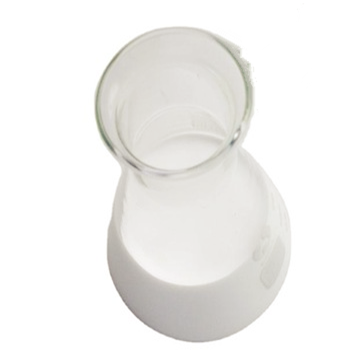Introduction to Water-Based Zinc Stearate: Linking Performance and Sustainability in Modern Production
Water-based zinc stearate is an environmentally friendly alternative to solvent-based lubricants and release representatives, using remarkable efficiency with minimal eco-friendly effect. As industries shift toward greener production techniques, this liquid diffusion of zinc stearate has actually acquired prominence throughout sectors such as rubber handling, steel creating, concrete spreading, and polymer production. Its capacity to offer efficient lubrication, stop bond, and lower surface defects makes it a versatile tool in modern industrial applications. With expanding regulative pressure on unpredictable natural compound (VOC) emissions, water-based zinc stearate attracts attention as a clean, effective, and scalable service.
(TRUNNANO Water Based Zinc Stearate)
Chemical Make-up and Functional Device
Zinc stearate is a metallic soap formed by the response of stearic acid with zinc oxide or zinc salts. In its water-based solution, it is normally dispersed using surfactants or emulsifiers to make sure stability and uniform application. When applied to surface areas, the zinc stearate fragments create a thin, hydrophobic movie that decreases friction and avoids direct get in touch with in between products. This mechanism is vital in mold launch operations, where it facilitates simple demolding without damaging the final product’s surface honesty. Furthermore, its high melting factor (~ 120– 130 ° C) enables it to do efficiently under moderate thermal problems, preserving capability during high-temperature processes.
Applications in Rubber and Polymer Processing
In rubber production, water-based zinc stearate serves dual objectives– as a mold launch representative and as an inner lube. It prevents sticking between uncured rubber substances and mold surfaces, making certain constant part top quality and lowering post-processing efforts. In thermoplastics and elastomers, it improves circulation buildings throughout extrusion and injection molding, decreasing pass away build-up and enhancing surface finish. Its compatibility with different polymers, consisting of polyolefins, PVC, and design materials, additionally broadens its utility. Furthermore, its non-reactive nature guarantees it does not interfere with healing or vulcanization reactions, protecting material efficiency attributes.
Duty in Steel Forming and Stamping Industries
The metalworking sector increasingly relies upon water-based zinc stearate for cold and cozy forming procedures. Made use of as a lube in stamping, drawing, and building, it creates a protective limit layer that minimizes device wear and boosts component surface high quality. Compared to oil-based or wax layers, it uses much better heat dissipation and cleaner procedure, which is particularly helpful in automatic assembly line. Moreover, its convenience of elimination after handling– utilizing basic water rinsing or mild cleaning agents– decreases cleansing expenses and prevents residue accumulation on finished elements. This makes it ideal for usage in automotive, aerospace, and precision component manufacturing.
Use in Concrete and Building And Construction Products
Within the construction field, water-based zinc stearate is widely used as an internal release agent for precast concrete elements. Unlike conventional oil-based products, it does not stain surface areas or interfere with second therapies like painting or finish. When blended right into concrete or related to formwork, it prevents bonding between the mold and mildew and the hard concrete, permitting very easy demolding while keeping dimensional accuracy. Its reduced viscosity enables also insurance coverage through splashing or brushing, making it appropriate for both manual and mechanical operations. Furthermore, it contributes to longer mold and mildew life by securing against chemical assault and abrasion from repeated spreading cycles.
Environmental and Security Advantages Over Conventional Alternatives
One of one of the most engaging advantages of water-based zinc stearate is its environmental account. Free from solvents, VOCs, and hazardous ingredients, it aligns with global sustainability objectives and occupational health and wellness standards. Workers benefit from reduced direct exposure to combustible or harmful substances, and producers can satisfy stringent air top quality guidelines without additional air flow systems. From a waste monitoring point of view, water-based solutions are much easier to take care of and take care of securely, supporting circular economy techniques. These qualities make it a recommended selection for business aiming to accomplish environment-friendly accreditations such as ISO 14001 or LEED conformity.
Market Patterns and Technical Innovations
( TRUNNANO Water Based Zinc Stearate )
The market for water-based zinc stearate is experiencing consistent development, driven by boosting need for environmentally friendly commercial options and more stringent environmental legislation. Producers are investing in sophisticated diffusion technologies to boost security, expand service life, and boost efficiency under extreme problems. Developments such as nano-dispersed zinc stearate and hybrid solutions with silicone or PTFE are being discovered to supply exceptional lubricity and temperature resistance. Additionally, clever distribution systems– consisting of atomized sprays and application devices incorporated with IoT– are enabling precise application control, minimizing consumption and functional prices.
Difficulties and Ongoing Research Instructions
Regardless of its advantages, water-based zinc stearate faces specific limitations, consisting of level of sensitivity to water solidity, prospective microbial destruction, and reduced load-bearing ability compared to synthetic lubes. To deal with these problems, ongoing research concentrates on maximizing emulsion stability, including biocides for microbial resistance, and boosting practical performance via additive harmonies. Compatibility with different substrates and process conditions likewise remains a vital location of growth. Initiatives are underway to customize solutions for specific applications, ensuring constant performance across diverse commercial environments.
Future Prospects: Assimilation with Smart Manufacturing and Green Chemistry
Looking in advance, water-based zinc stearate is positioned to play a central duty in the transition toward intelligent and lasting production. Its assimilation with Industry 4.0 modern technologies– such as real-time surveillance, anticipating upkeep, and automated dispensing– will make it possible for extra reliable and flexible production operations. Developments in bio-based surfactants and eco-friendly feedstocks will certainly additionally improve its environmental credentials, supporting decarbonization approaches throughout supply chains. As industries continue to focus on source performance and environmental stewardship, water-based zinc stearate stands for a critical technology that stabilizes technical performance with ecological duty.
Provider
TRUNNANO is a supplier of water based zinc stearate with over 12 years of experience in nano-building energy conservation and nanotechnology development. It accepts payment via Credit Card, T/T, West Union and Paypal. Trunnano will ship the goods to customers overseas through FedEx, DHL, by air, or by sea. If you want to know more about water based zinc stearate emulsion, please feel free to contact us and send an inquiry(sales5@nanotrun.com).
Tags: water based zinc stearate, zinc stearate, zn stearate
All articles and pictures are from the Internet. If there are any copyright issues, please contact us in time to delete.
Inquiry us
Error: Contact form not found.

